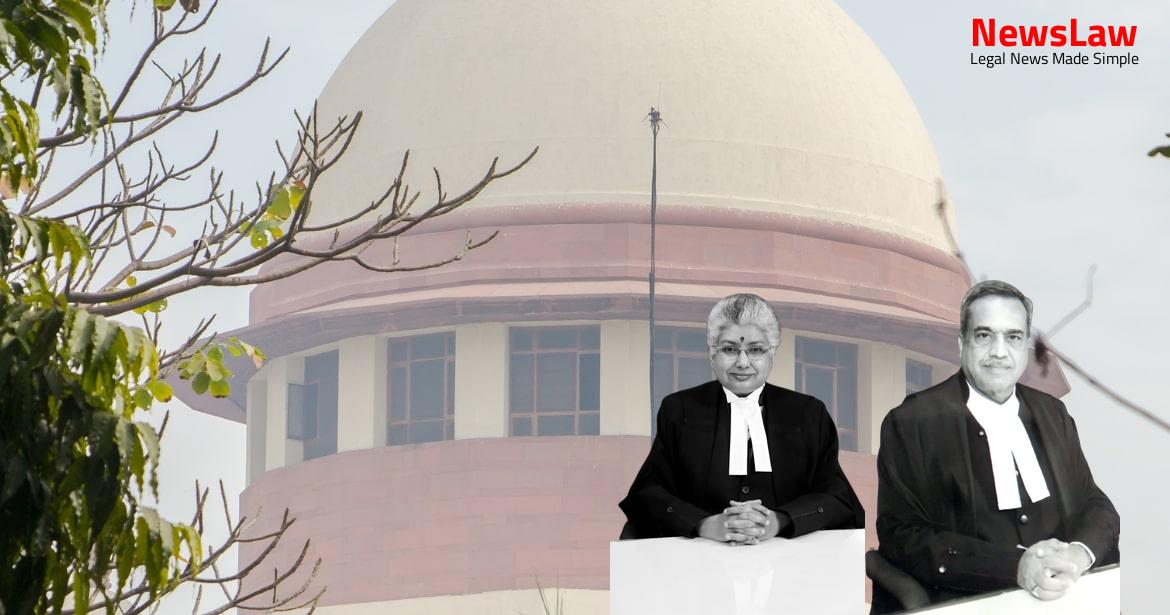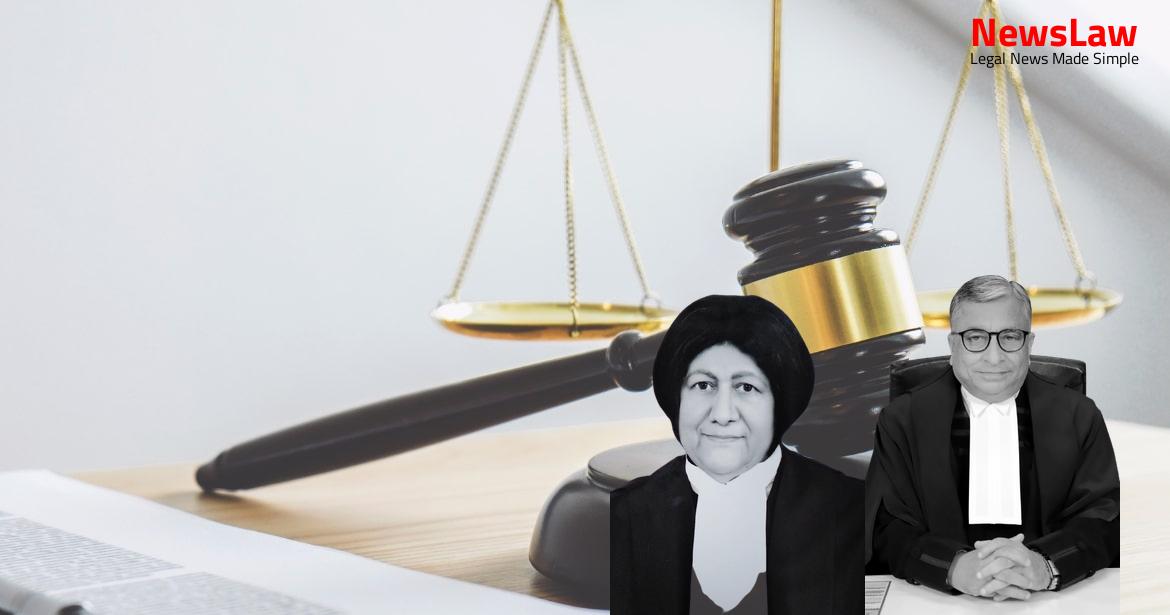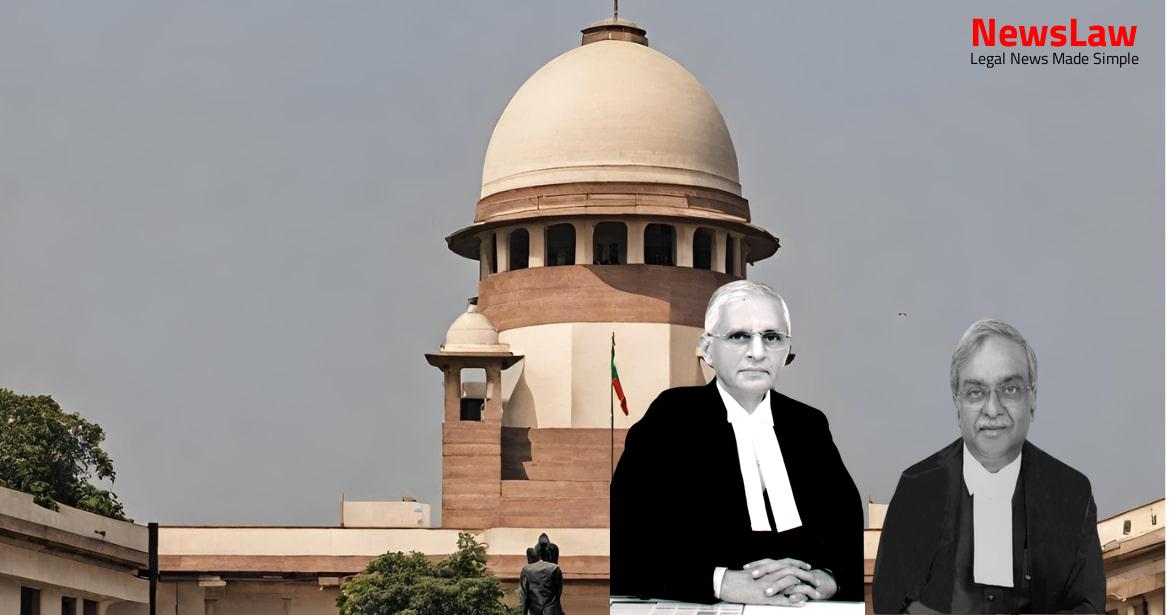In a recent legal case, the High Court’s decision to quash criminal proceedings came under scrutiny for its lack of detailed legal analysis. The judgment raised concerns about the reasoning behind the order and emphasized the need for thorough judicial deliberation. Let’s delve into the intricacies of the court’s legal critique and its implications in the broader context of legal proceedings.
Facts
- The appellant filed an application under Section 156(3) Cr.P.C. against the accused persons for an incident on 11.09.2004.
- Local police did not lodge the FIR initially, leading to the application.
- The Magistrate ordered the police to lodge the FIR for offenses under various sections of IPC and the Scheduled Castes and Scheduled Tribes (Prevention of Atrocities) Act.
- A First Information Report was registered following the Magistrate’s order.
- The High Court allowed the accused’s application under Section 482 Cr.P.C. and quashed the criminal proceedings and summoning order.
- This dissatisfaction with the High Court’s decision led to the present appeal.
- Complainant filed a Protest Petition against the final report and submitted injury report.
- Learned Magistrate ordered to issue summons to the accused for offences under IPC and Act based on evidence.
- Witnesses supported the prosecution case with their statements recorded under relevant Cr.P.C. sections.
- Proceedings from police final report merged into Criminal Complaint Case No.2365 of 2004 before Learned Special C.J.M.
- Investigating Officer submitted closure report, but learned Magistrate rejected it.
- Complainant expressed doubts about fair investigation due to collusion between local police and accused.
Also Read: Ruling on Circumstantial Evidence in Murder Case
Arguments
- The High Court did not independently apply its mind after hearing submissions on behalf of the accused before quashing the criminal proceedings.
- The learned Magistrate had already considered the statements and material on record before issuing summons to the accused for trial, which should not have been interfered with by the High Court under Section 482 Cr.P.C.
- The accused approached the High Court to quash the proceedings through Criminal Misc. Application No.14607 of 2008.
- The High Court’s decision to quash the criminal proceedings was based on a cryptic and non-reasoned one-paragraph order.
- The counsel for the complainant and the State have challenged the High Court’s decision, highlighting the lack of reasoning in the order.
- The Senior Advocate for the accused has supported the High Court’s decision.
- Considering the submissions from both sides, the High Court’s decision to quash the proceedings under Section 482 Cr.P.C. may not be interfered with by the Supreme Court under Article 136 of the Constitution of India.
Also Read: Challenging Legal Presumptions in Negotiable Instrument Cases
Analysis
- The High Court passed a cryptic and non-speaking order, setting aside the application under Section 482 Cr.P.C. in a cursory manner.
- The High Court quashed the criminal proceedings without providing any detailed reasons in a one-paragraph order.
- The lack of reasoning and discussion in the High Court’s order is not appreciated, as emphasized in previous decisions by the Supreme Court.
- The High Court did not independently analyze the allegations against the accused or the validity of the Magistrate’s order issuing summons.
- The summoning of the accused was based on statements from the complainant and witnesses, as well as evidence like injury certificates, indicating a lack of detailed consideration by the High Court in quashing the proceedings.
- The High Court did not provide any observation on the perceived incorrectness or error in the Magistrate’s order summoning the accused.
- The High Court’s handling of the application under Section 482 Cr.P.C. and the subsequent quashing of the criminal proceedings is criticized.
- The seriousness of the allegations under Sections 307, 504, 506 of the IPC and Section 3(10)(15) of the Act warranted a more cautious approach by the High Court.
- The judgment and order by the High Court are deemed unsustainable both factually and legally.
- The existence of a prima facie case for the alleged offenses should have been considered before quashing the criminal proceedings.
Also Read: Legal Analysis of Admission Irregularities in Educational Institutions
Decision
- The order summoning the accused by the learned Magistrate is restored.
- The present appeal is allowed based on the above reasons.
- The impugned judgment and order by the High Court under Section 482 Cr.P.C. in Criminal Misc. Application No.14607 of 2008 is quashed and set aside.
Case Title: SATISH KUMAR JATAV Vs. STATE OF U.P. (2022 INSC 577)
Case Number: Crl.A. No.-000770-000770 / 2022



